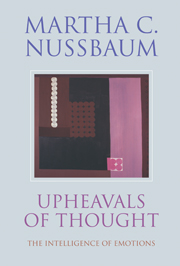Book contents
5 - Music and Emotion
Published online by Cambridge University Press: 05 June 2012
Summary
EXPRESSION AND THE IMPLIED LISTENER
Music has deep connections to our emotional life. So much has been granted by most philosophers who have addressed the topic. But the nature of those connections is difficult to describe. Some of the difficulties have been compounded by deficiencies in the conceptions of emotion with which some philosophers of the past have approached the question. I shall argue that my own conception leads to progress. I shall be guided by three writers who (in substantial agreement with one another) seem to me to offer the most promising leads toward an adequate view: Marcel Proust, Paul Hindemith, and Gustav Mahler.
I approach this topic neither as an expert in the theory or history of music nor as an expert performer, but rather as an amateur music lover whose emotional life is profoundly influenced by musical experiences. Given both the limits of my ability and the context of this chapter within my larger project, my aim is not, and could not be, to provide a complete theory of the complicated topic of musical emotion. It is, instead, to indicate how an emotion theory of the type I have been developing would approach the topic, and how it might help to illuminate issues that have proved difficult to address. I believe that the best way for me as an amateur to approach these issues is to focus on a single composer whom I love and in connection with whose works I have intense emotional experiences.
- Type
- Chapter
- Information
- Upheavals of ThoughtThe Intelligence of Emotions, pp. 249 - 294Publisher: Cambridge University PressPrint publication year: 2001
- 4
- Cited by



